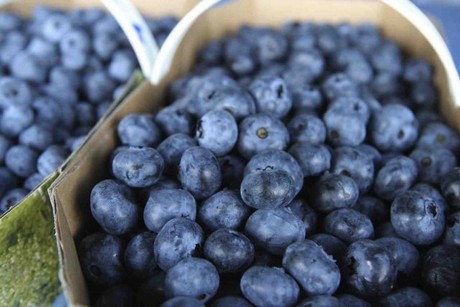 The Free Trade Agreement between Canada and Europe could be a blessing for the region's blueberry industry.
The Free Trade Agreement between Canada and Europe could be a blessing for the region's blueberry industry. At least that is what Rémy Lambert, Professor at Laval University, believes, ''It will open up the markets and stimulate the demand because the price will be lower. And, as natural products are on the rise in Europe, it will be a benefit for Quebec's wild blueberry''. According to Lambert, the demand for organic produce has risen from 5 to 10% annually in Europe.
It is an important opportunity for the Quebecois blueberry as the United States has yet to sign such an agreement with the European Union.
By reducing the export prices, the demand for imported products will be boosted. This advantage will mainly be noticed in processed products, such as dried blueberries and blueberry concentrate which are taxed at 17.6% and purée at 18.4% according to a study by the firm Forest Lavoie.
It is excellent news for the region's producers, of which 80% of production is sold abroad. An exportation value of 85 M $ in 2012, of which 34.2 M $ was to Europe.
The price of blueberries
Whilst at the end of 2013 the price of cultivated blueberries had gone down 26 cents, the price of wild blueberries has gone up 7 cents to 1.92$ per pound.
''The demand for wild blueberries is a constant, because the clients want natural fruits, that are not watered with pesticides, like cultivated blueberries are'' says Lambert. It is important to note that this rise in price is also due to a catastrophic harvest this year, which has made the blueberry rarer.
This had a direct effect on exports. They dropped 30% in August and September compared to the same period in 2012, this represents a drop of 850,000 pounds in volume. Sales in Europe dropped 50% whilst the American market remained stable and the Japanese market erupted by 506%. The exported quantity in this country is much weaker, 144.00 kg compared to 918.000 kg.





